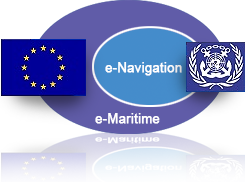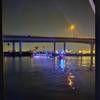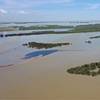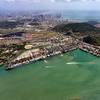Transas SimUC 2013 to Address e-Navigation Challenges
E-Navigation has been a hot topic in the maritime industry for some time, and it is likely that it will continue to be into the future. But for many in the industry, the subject remains an abstraction that everybody is talking about but few can properly explain.
That is why the Future Challenges in e-Navigation session is one of the highlights of the Transas Simulation User Conference 2013 with its theme, Future Trends and New Challenges in Maritime Simulation.
The session will pursue a number of challenges: to explain and provide an update to the status of e-Navigation from legalization and planning point of view; to present an overview of benefits e-Navigation can bring; to give an idea of the anticipated training needs that will come with e-Navigation and how a large scale simulation network can be arranged to meet the training needs; to exemplify how services based on e-Navigation and e-Maritime can enhance safety, increase efficiency and provide better protection of the environment; and finally to provide an introduction to products and services designed for e-Navigation that will be launched shortly by Transas.
Among confirmed speakers is Bill Cairns, USCG and IALA e-Navigation Committee Chairman. Mr. Cairns will provide an update on e-Navigation, including IMO and IALA e-Navigation efforts and U.S. Interagency Committee on the Maritime Transportation System integrated action team on e-Navigation.
Another speaker, Lee Alexander from the University of New Hampshire Center for Coastal and Ocean Mapping, will discuss e-Navigation challenges, opportunities and its benefits.
Anders Brödje, Senior Research Coordinator, Research and Innovation Group, Swedish Maritime Administration will present a paper “Sea Traffic Management – new innovation calls for new training. What we learned from the Mona-Lisa Project”. MonaLisa is a Motorways of the Sea project which aims at giving a concrete contribution to the efficient, safe and environmentally friendly maritime transport. This is done through development, demonstration and dissemination of innovative e-navigational services to the shipping industry, which can lay the groundwork for a future international deployment. Quality assurance of hydrographic data for the major navigational areas in Swedish and Finnish waters in the Baltic Sea contributes to improving safety and optimization of ship routes.
www.transas.com/simuc










